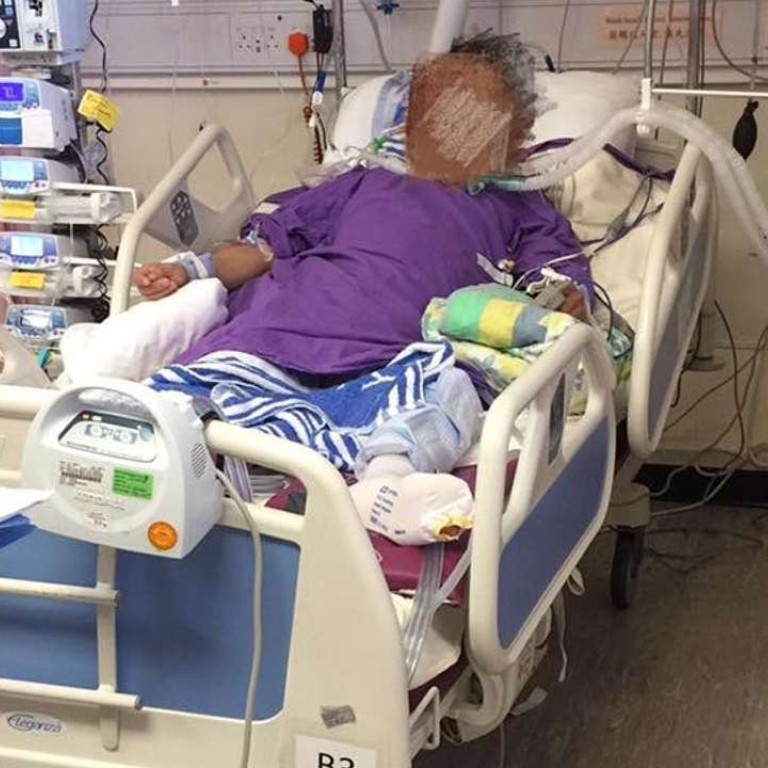
Hong Kong police probe case in which prisoner was sent to hospital with bleeding kidney, broken ribs
Father says prison staff told him injuries might have resulted from first aid efforts, but he is not convinced and reports case to police
Police have launched an investigation into why a prisoner who was sent to hospital with abdominal pain ended up with a bleeding kidney and two broken ribs.
The 38-year-old man surnamed Tsang, who is in critical condition in a coma at Pamela Youde Nethersole Eastern Hospital, was sentenced to jail in Tong Fuk Correctional Institution on Lantau for almost four weeks on a theft charge, according to his father.
The 61-year-old father was alerted by the Correctional Services Department on New Year’s Day that his son had been taken to the hospital in Chai Wan.
His father told a press conference on Tuesday that a doctor from the hospital told him that his son’s left kidney was bleeding severely.
Two operations were performed to stop the bleeding. However, doctors told the father that the kidney might have to be removed.
The father was also told there were two broken ribs.
The doctor suggested a hard object might have been involved.
According to the father, prison staff explained that his son had been taken to the hospital with abdominal pain, and the broken ribs might have resulted from first aid efforts.
The father said he was not convinced.
Lawmaker Cheng Chung-tai, who is helping the father, said he thought the prisoner might have been assaulted by prison guards. He urged the department to explain what had happened to Tsang.
The father and Cheng made a report at Wan Chai police station on Tuesday. Cheng also wrote to the Security Bureau about the case.
A Lantau district investigation team has taken up the case as “alleged assault”.
In a “clarification” on Tuesday night, the department said it had found nothing abnormal relating to the prisoner’s situation.
The department said the prisoner had complained of abdominal pain inside a dining hall at 6.35pm on January 1. Correctional officers then arranged for him to be examined in the prison.
The senior medical officer at the prison found he sustained abdominal distension.
It said the prisoner stated to the medical officer that he had not been assaulted.
No signs of physical assault were found during the medical examination and a preliminary inquiry, which included a review of closed-circuit television footage, showed no abnormality.
The medical officer decided to refer the prisoner to a hospital for further examination. During the transfer, he remained conscious.
The department said his physical condition later deteriorated and medical staff applied emergency resuscitation upon his arrival at the hospital.
It said his relatives were informed about the situation without delay.

